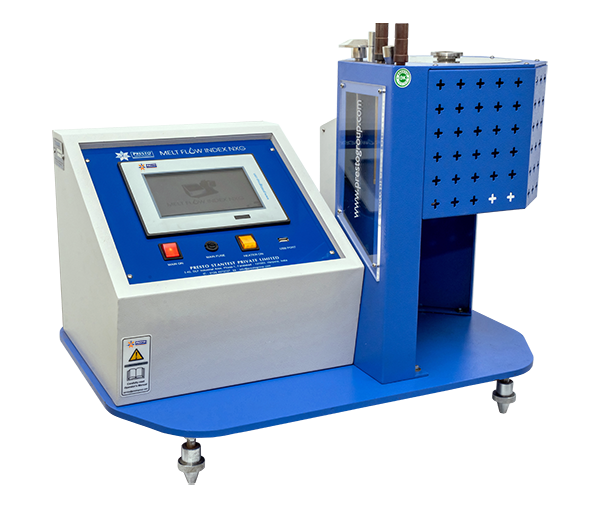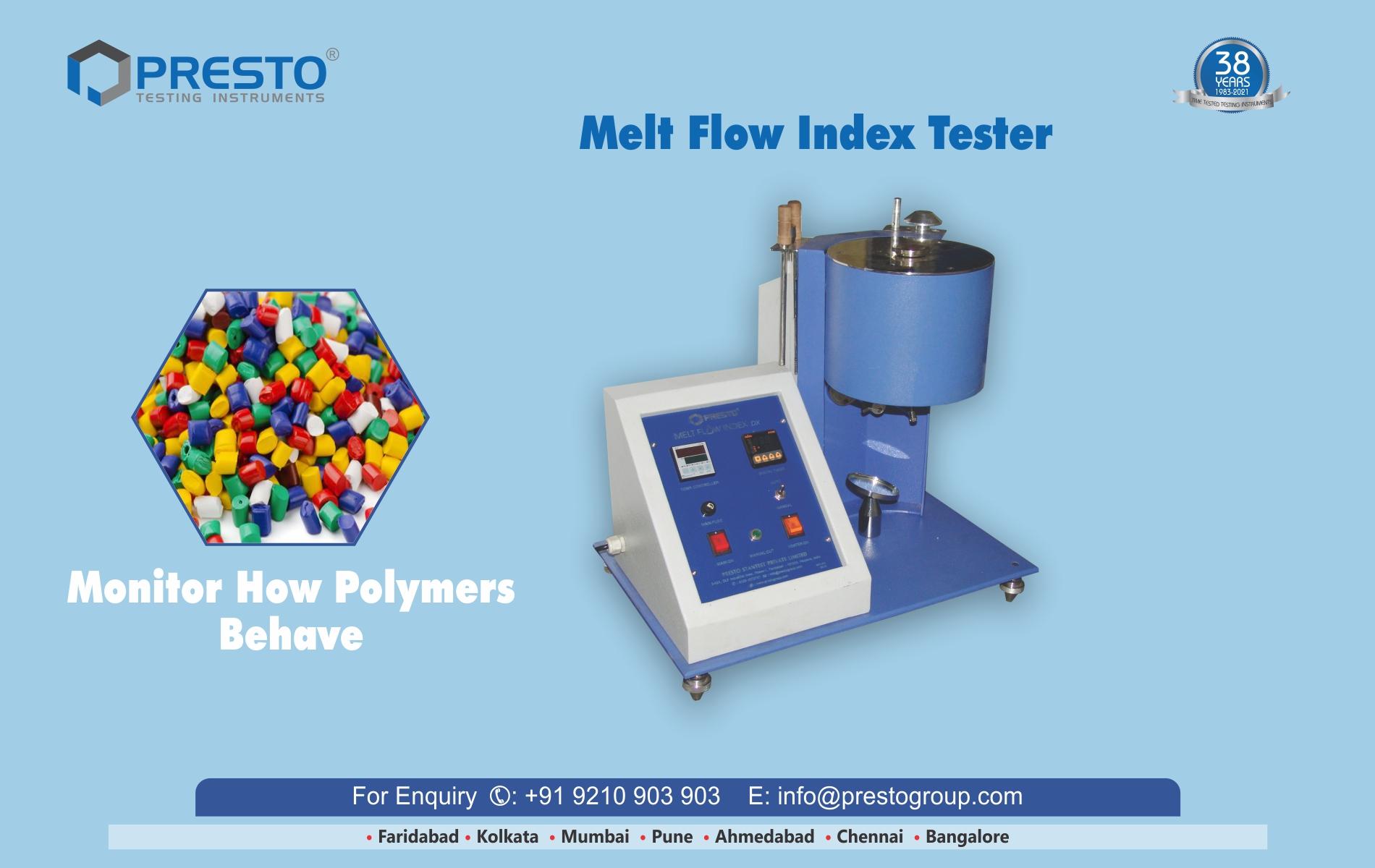What is a Melt Flow Index Tester and How is it Used in Plastic Manufacturing?

In the world of plastic manufacturing, the quality and consistency of raw materials are crucial for producing high-performance products. One of the most important tools used to measure the properties of plastic materials is the melt flow index tester. This piece of equipment helps manufacturers determine the flow characteristics of melted plastic, which is essential for ensuring that the materials will perform as expected during the molding or extrusion process. In this blog, we’ll explore the melt flow index tester, its applications, and factors that affect the melt flow index tester price.

What is a Melt Flow Index Tester?
A melt flow index tester is a specialized machine used to measure the flow rate of thermoplastic materials under controlled conditions. The melt flow index (MFI) is a critical parameter that reflects how easily a polymer melts and flows under heat and pressure. This test is particularly important in industries that rely on plastic manufacturing, such as packaging, automotive, electronics, and consumer goods.
The MFI value is measured in grams per 10 minutes, indicating how much material passes through a specific-sized die at a predetermined temperature and pressure. This test helps manufacturers ensure that their plastic materials have the right flow characteristics for different processing techniques, such as injection molding, extrusion, and blow molding. A higher MFI indicates that the material flows more easily when melted, while a lower MFI suggests that the material is more resistant to flow.
Modern melt flow index testers are equipped with advanced features like digital displays, temperature control, and automated testing processes, which enhance accuracy and efficiency. The melt flow index tester price varies depending on the machine's features, capacity, and precision.
How is Melt Flow Index Measured?
The melt flow index is measured using a standardized procedure to ensure consistent and reliable results across different materials and manufacturers. The material to be tested, usually in the form of pellets, is placed inside a heated barrel in the melt flow index testing. The barrel is set to a specific temperature based on the type of plastic being tested.
Once the material reaches the desired temperature and becomes molten, a piston applies a fixed weight or pressure on the molten polymer, forcing it through a small die at the bottom of the barrel. The amount of material that flows through the die within 10 minutes is collected and weighed, and this weight is recorded as the melt flow index (MFI) value.
The melt flow index is expressed in grams per 10 minutes (g/10 min), which provides insight into the material’s flowability under certain conditions. This value helps manufacturers determine whether the material is suitable for particular applications, as different manufacturing processes may require specific MFI values for optimal performance.
How Do You Test Melt Flow?
To test melt flow, follow these steps:
- Sample Preparation: First, select the thermoplastic material to be tested, typically in pellet form. The sample is weighed and then loaded into the heated barrel of the melt flow index tester.
- Set the Temperature: The machine's temperature is adjusted based on the type of material being tested. Different polymers require different temperatures to melt correctly.
- Apply Load: A specified weight, usually part of the testing standards like ASTM D1238 or ISO 1133, is placed on the piston. The weight helps push the molten plastic through the die, simulating how the material would behave under pressure in a real manufacturing process.
- Measure Flow: As the material flows through the die, it is collected over a set time, typically 10 minutes. The amount of material that flows out is weighed and calculated to give the melt flow index value.
This standardized procedure ensures consistency and repeatability, providing manufacturers with reliable data to assess the quality and usability of their plastic materials.
What is Melt Flow Indexer Used For?
The melt flow indexer is primarily used to assess the flow characteristics of thermoplastic materials, which is crucial in determining how the material will behave during the molding or extrusion process. This test is valuable for several reasons:
- Quality Control: Manufacturers use the melt flow index tester to verify the quality of raw materials before they are processed. By measuring the MFI, manufacturers can ensure that the material will meet specific performance standards and behave consistently during manufacturing.
- Material Comparison: The MFI value helps manufacturers compare different batches of the same material or different types of materials. This comparison is essential when switching between material suppliers or evaluating recycled plastics for use in production.
- Process Optimization: The MFI value provides insights into how easily a material will flow when melted, which is critical for optimizing processes like injection molding or extrusion. Materials with the wrong MFI may result in poor product quality, excessive waste, or even equipment malfunctions.
- Product Development: During product development, manufacturers use the melt flow indexer to select materials with the right flow properties for their intended application. For example, plastic parts that require high flowability during molding may require materials with a higher MFI.
The melt flow index tester is a vital tool in plastic manufacturing, helping manufacturers assess the flow characteristics of thermoplastic materials under controlled conditions. By measuring the melt flow index, manufacturers can ensure that their raw materials are suitable for various molding and extrusion processes, leading to better-quality products and more efficient production.
The melt flow index tester price can vary depending on the machine’s features, capacity, and precision, but investing in a high-quality tester is essential for maintaining consistent product quality. Understanding how to test melt flow and interpret the results is key to optimizing material performance, ensuring successful manufacturing, and maintaining high standards in quality control.
Email ID:- info@prestogroup.com
Mobile no:- +91-9210903903
- Art
- Causes
- Crafts
- Dance
- Drinks
- Film
- Fitness
- Food
- Spellen
- Gardening
- Health
- Home
- Literature
- Music
- Networking
- Other
- Party
- Religion
- Shopping
- Sports
- Theater
- Wellness


